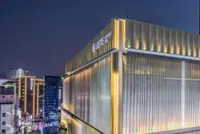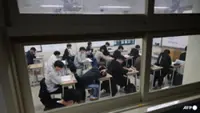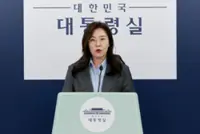Prosecutors say Yoon Suk-yeol's martial law decree contained clauses that are illegal and unconstitutional. - Reuters
SEOUL: The legal representative for former defence minister Kim Yong-hyun, who is on trial accused of taking part in an insurrection led by President Yoon Suk-yeol, denied the president’s claim that he made a mistake in copying down the orders for the emergency martial law declared on Dec 3.
Kim’s lawyer Lee Ha-sang told reporters on Thursday (Jan 16) that “no mistakes were made” when writing the martial law decree, saying it was to “ban political activities in a situation where the National Assembly is neutralised and the state affairs are paralysed”.





